For the most part, history concerns itself with victories and good decisions; there’s a reason for the saying, “History is written by the victor.” But in many cases, the mistakes are just as crucial a part of a story as the right choices are, and sometimes the mistakes are an interesting story all on their own. While nobody particularly likes to live down a mistake, they can serve as important lessons and in some cases can change the entire world. The biggest mistakes in history are fascinating glimpses into situations that could have gone very differently: wars avoided, lives saved, fortunes made, treasures preserved. There’s no going back in time and changing what happened, but it is definitely interesting to look deeper into the missteps that contributed to some of the major events throughout history.
10. George Bell (CEO of Excite) rejected the offer to buy Google — twice

There are a few different factors that can make a mistake huge: loss of life obviously plays a role, but sometimes a mistake can represent such a loss of opportunity that it qualifies as enormous. Such is the case of George Bell, CEO of Excite, who was faced with the decision of whether or not to acquire Google for cheap and said no. Twice. In what has since become a notorious piece of internet history, Bell decided not to acquire Google in 1996 for $1 million. And when met with another offer of $750,000, he still said no. For reference, the net worth of Alphabet (Google’s parent company) was within 1% of $1 trillion as of January of this year.
Of course, at the time the relative valuations of the two companies were very, very different. Though Excite functionally doesn’t exist anymore, at the time it was worth approximately $150 million. Google founders Larry Page and Sergey Brin were — in retrospect — really onto something with their search engine idea, but Bell insists that there was no way for anyone to know that it would take off like it did. There are conflicting stories regarding the reason, but the result is, ultimately, the same: Excite, and George Bell, lost out on a deal that would have earned hundreds of billions.
9. Heinrich Schliemann finds Troy, but destroys it
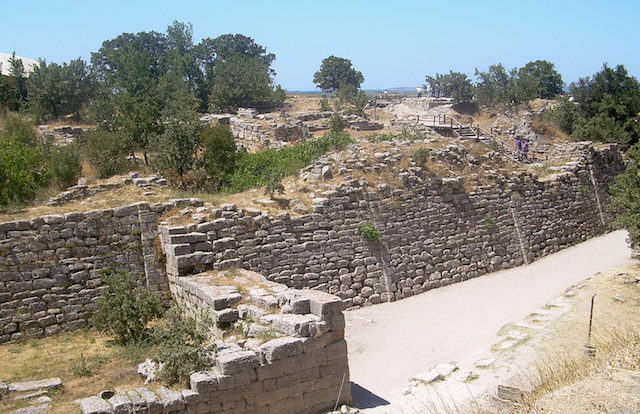
Archaeology was not always the rigorous field it is today; as with many fields, for a long time it was rife with amateurs. Unfortunately, those amateurs tended to be less careful than their modern-day counterparts in finding and excavating their sites. Which brings us to Heinrich Schliemann and the discovery of Troy.
Schliemann was passionate about proving the truth of stories like Homer’s Iliad and Odyssey, determined to prove that myths were facts, and the place he was most obsessed with locating was the city of Troy. By Schliemann’s time, the city was declared a mythical place, invented for stories. The good news is that Schliemann did almost certainly find the mythical Troy; the bad news is that due to his excavation methods, the evidence of Troy was severely damaged. Archaeologists largely agree that he did find the right location: a site called Hisarlik, in the Anatolia region.
Schliemann, in his initial excavations, found that there was not just one set of ruins at the site, but instead that it was like a subterranean layer cake of older cities, one on top of the other. But which was Troy? Schliemann decided that Troy must be deep down in the pile, and used explosives to help clear out the more recent buildings and artifacts. Unfortunately, he’d guessed wrong; surveys and assays of the various layers of the excavation site discovered that Troy was actually closer to the surface. Schliemann’s efforts had heavily damaged the remains and artifacts of the city, destroying a great deal of irreplaceable evidence. It’s still a rich site, of course; but if Schliemann had been a little more patient, we might know much more about how much the stories match up to the real place — and what life was like there and then.
8. A wrong turn put Franz Ferdinand in the right place to start WWI
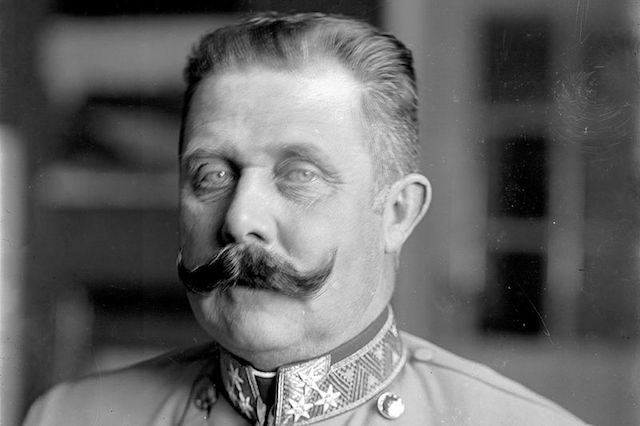
In many ways, World War I was a global event waiting for a reason to happen; a complex web of secret treaties and agreements and alliances between various countries, combined with many different specific ethnic and national tensions, made it likely that something would have triggered the global war sooner or later. The spark that lit the fuse, ultimately, was the assassination of Archduke Franz Ferdinand on the 28th of June, 1914. But if not for a few key mistakes and miscalculations — and a language barrier — it might not have ever happened.
Overall, the scenario leading up to the assassination of the Austrian archduke played out almost absurdly badly; two of the conspirators failed to act early in the archduke’s itinerary in the city, and a third had managed to throw his bomb, only to hit the wrong car. Gavrilo Princip even missed his first shot at assassinating Franz Ferdinand, failing to act in time. The conspirators could have been forgiven for giving up at that point, certainly. But the archduke decided after a brief rest that he wanted to visit the hospital where those injured by the earlier bomb were being treated. Back into the cars the entourage went; unfortunately, the plans for the change in itinerary were discussed in German, and the drivers only spoke Czech, so initially they continued on the original route. When it did become clear that there was an issue, the cars stopped to turn around, with Franz Ferdinand’s vehicle stopping right in front of Gavrilo Princip. Princip fired two shots into the car, and somewhat miraculously killed both the archduke and his wife before running away. If not for a language barrier and a breakdown in communication, the first world war may have come about very differently.
7. Cost-cutting, broken radar caused the Exxon Valdez oil spill
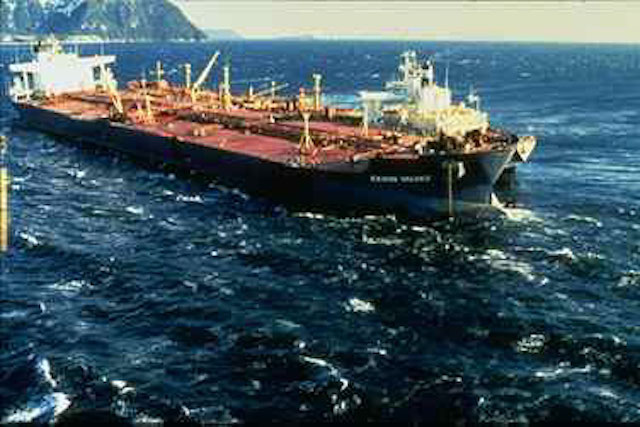
The Exxon Valdez oil spill stands out as one of the biggest environmental disasters associated with the petroleum industry throughout history; even after the Deepwater Horizon spill displaced it as the biggest oil spill in US waters, it remains solidly in second place. The accepted story goes that Captain John Hazelwood, drinking heavily and away from the ship’s controls, was largely to blame for the incident. But Hazelwood was actually cleared in trial, with witnesses reporting that he had been sober and alert when the incident occurred. The real culprits were cost-cutting measures by Exxon management, and hard hours resulting in the exhaustion of the reduced crew.
The single most crucial factor was likely the radar system that the ship was supposed to be using to help navigate the waters. Radar systems are incredibly important for ships at sea; they help identify potential hazards in the water, allowing the crew to avoid them. In the case of the Exxon Valdez, the radar system had been broken for over a year before the oil spill — and worse, Exxon knew about it. According to investigative reporter Greg Palast, the company viewed the equipment as simply being “too expensive to fix and operate.” It likely would have been less expensive than the payouts assessed by the courts: an initial amount of $287 million in actual damages and $5 billion in punitive damages — though, through appeals, that amount has been reduced over time. Still, the company could have saved itself a great deal of money if it had kept up the radar and crew complement.
6. Constantinople fell due to one gate left open
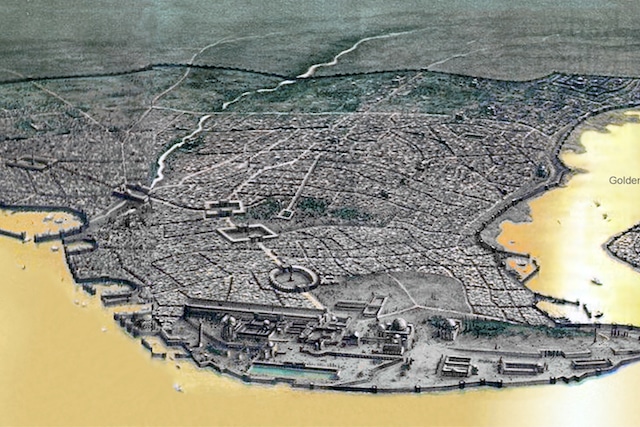
As fans of They Might Be Giants can attest, Istanbul was Constantinople; now it’s Istanbul, not Constantinople. But the question of how Constantinople fell is not answered in the song–instead, it’s necessary to look into history of the region, and particularly into one key mistake made by the people responsible for protecting Constantinople in the siege that would eventually lead to the Byzantine capital being captured by Ottoman forces.
The siege lasted for 53 days, starting on April 6, 1453. Constantinople had been an imperial capital since its consecration under Constantine, and despite being the center of many sieges had only fallen one other time, during the Fourth Crusade. In spite of being very much outnumbered by the armies of Sultan Mehmed II, Emperor Constantine XI Palaiologos had reason to be confident: the walls surrounding the city had been recently repaired, the defenders were reasonably well-equipped, and the consensus was that the Byzantine empire could wait out the siege until help from the West arrived. In spite of being outnumbered, the Byzantine army fought well in the skirmishes launched by the Ottoman army, until shortly after midnight on May 29th. In the midst of a major battle that pitted multiple Ottoman groups against different parts of the Byzantine defenses, the Genoese general in charge of the land troops, Giovanni Giustianini, was badly injured and had to be evacuated from the front lines.
In the flurry of getting the general back into the safety of the city, Turkish troops were able to partially breach Constantinople’s walls, and raised Turkish flags. This resulted in a panicked retreat to attempt to defend the interior of the city, which in turn meant that someone forgot to close one small, postern gate that led into the city. That one gate allowed a large number of Ottoman troops into the city, and from there the fall of Constantinople was inevitable. Historians can’t say that Constantinople would necessarily have remained part of the Byzantine empire without the mistake; there are simply too many other factors. But the gate being left open allowed a small breach to become a successful invasion, and eventually allowed Constantinople to become Istanbul.
5. The Austrian army attacked itself and killed 10,000

The Ottoman Empire has the distinction of having seemingly won many of its victories through luck. Though it happened long after the fall of Constantinople, the Battle of Karánsebes was another situation where the opposing army–in this cause, the Austrian army–made a crucial mistake that enabled an Ottoman victory. Taking place during the Austro-Turkish War of 1787-1791, the battle was not just a significant loss of life but also an embarrassment to the Austrian army — considered to be one of the most important and valuable armies at the time. And it might not have happened if not for a mistake and a crucial breakdown in communication.
The trouble began when the vanguard of the 100,000 strong army of Austria scouted ahead in the attempt to track the Ottoman army. Having crossed the Timis River, instead of Ottomans the hussars encountered an encampment of Romani people, who offered to sell them some schnapps. Tired and definitely interested in a break for drinks, the calvarymen accepted, and began drinking. Some time afterwards, some of the infantry also crossed the river, sent to look for the delayed vanguard. Seeing the partying hussars, the infantry demanded a share of the alcohol, and the drunk officers began building makeshift fortifications around the barrels. What started as a drunken brawl turned into something else entirely when, in the midst of the melee, someone in the infantry shouted, “Turci! Turci!” (“Turks! Turks!”). That brought about a rapid flight of the different members of the multilingual group of soldiers, and eventually to the cavalry and infantry coming upon the encampment of the Austrian army. The confusion resulted in the encamped army believing they were being set upon by Ottoman troops, and both groups firing at each other, resulting in 10,000 dead. Two days later, the arriving Ottoman army discovered the dead troops, and easily took the nearby village. If not for some irresponsible partying and a drunken brawl, things might have gone very differently.
4. Weak weather forecasting left the Germans wide open for D-Day
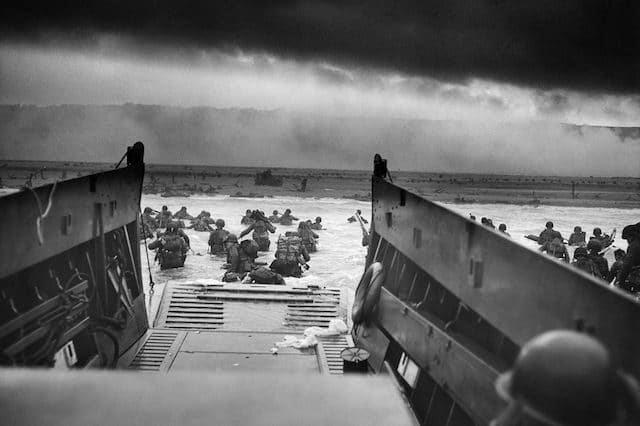
Many factors played into the success of D-Day, the attack on Omaha Beach that turned the tide of the war during World War II and ultimately resulted in an Allied Forces victory. Certainly deliberate misinformation played a key role; but notably one of the most important factors that made the attack such a success was weak weather forecasting capabilities of the German forces.
The German army had known, of course, that the Allies were planning a major offensive–they’d even narrowed down the most likely places where such an attack would be launched, and reinforced defenses there. Because of this, the D-Day invasion had a very narrow window and a very exacting set of circumstances for when it could happen. But where American and British forces concurred that the bad weather — which would be disastrous to the ships and soldiers — would clear up in time, the older technology and interpretation of the Luftwaffe meteorologists led to a belief that the conditions wouldn’t be safe for the Allies until the middle of June; as a result, the German forces left the coast of France only very lightly defended–and in fact, the Germans’ valuable asset, Field Marshal Erwin Rommel, took advantage of the safe window to go home and celebrate his wife’s birthday. The result of this mistake on the part of German meteorologists was that the Normandy coast was inadequately defended, Rommel wasn’t where he was needed at the time he was needed, and the Allies turned the tide of the European theatre of World War II. If the Germans had been in on the same details that the Allies had had, they might have been better prepared, and D-Day may not have been as strong a success as it was.
3. Mao Zedong’s agricultural mistakes led to the Great Chinese Famine

Some of the biggest mistakes in history come about due to personal prejudices or beliefs, alongside a poor understanding of the bigger picture. The Great Chinese Famine, a period between the years of 1959 and 1961, caused millions of deaths (estimates range from 15 million to 55 million), and if it weren’t for Mao Zedong’s determined hatred for various “pest” species, including sparrows, it might not have happened.
One of the earliest initiatives of the Chairman’s Great Leap Forward policy was The Four Pests Campaign, targeted at ridding China of rats, flies, mosquitos, and sparrows. It’s not hard to imagine why a country would want to rid itself of rats, flies, and mosquitos — they’re well-established pests, and in all three cases are well-known carriers of disease. Sparrows, while not a particularly good disease vector, are an agricultural pest, particularly in large numbers; they eat grains and fruit predominantly, and in a culture that relies heavily on grain staples (especially rice), sparrow predation of crops means significant losses. In addition, the Communist government implemented collectivist policies and other agricultural “reforms” that ignored basic foundations of agriculture (overcrowding plants of the same type in the assumption that they wouldn’t compete against their own “kind”, and deep plowing, not suited to the rocky, sandy soils that much of China has).
The attempted eradication of sparrows resulted in a loss of effective pest control–since sparrows also eat a large number of insects–and an increase in the insects that much more effectively ravaged grain production. This, paired with disastrous policies regarding agronomy techniques and bad weather, resulted in a loss of greater than 30% of production. This, in turn, resulted in mass starvation and death. If Mao Zedong had paid more attention to the warnings of scientists in his own country, millions of lives might have been preserved.
2. A few pairs of binoculars might have saved the Titanic
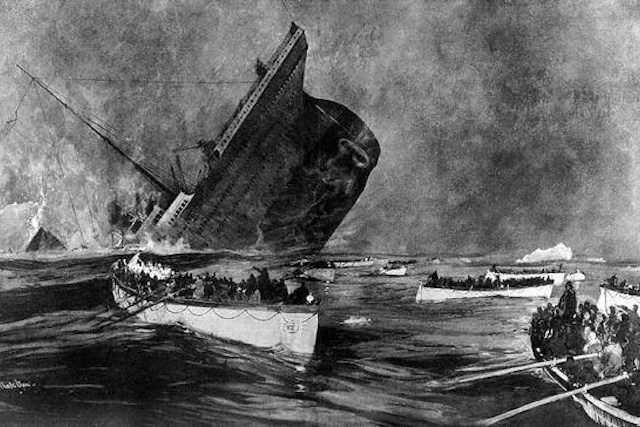
There are, obviously, a number of errors that brought about the great marine disaster that is the sinking of the RMS Titanic. In retrospect, it almost seems as though every possible thing that could go wrong, did go wrong; and nowhere is this more true than the accident that resulted in none of Titanic’s crew having binoculars. The original Second Officer of the Titanic, David Blair, was reshuffled at the last moment, effectively replaced by Henry Wilde who had experience with Titanic’s sister ship, the RMS Olympic just before the scheduled departure from Southampton. In his haste, he forgot to hand over the key to the crow’s nest locker, where the supply of binoculars was.
Of course, not having binoculars makes it much harder for crew to spot potential dangers from far away–such as icebergs, which of course was the cause of the Titanic’s eventual sinking. In the enquiries into the causes of the disaster after the fact, one of the crew members interviewed mentioned the lack of binoculars and their potential role in what was, in fairness, a voyage with so many factors against it that it was nearly destined for disaster. Frederick Fleet, the crew member in question, remarked that with binoculars, he might have seen the iceberg “a bit sooner.” When asked how much sooner, he responded, “Well, enough to get out of the way.” While a number of factors played a role, if the lookouts had been able to spot the iceberg with more time to spare, the Titanic may not have sunk, and who knows what those onboard who lost their lives would have gone on to do?
1. A mistranslation helped to bring about the Hiroshima and Nagasaki bombings
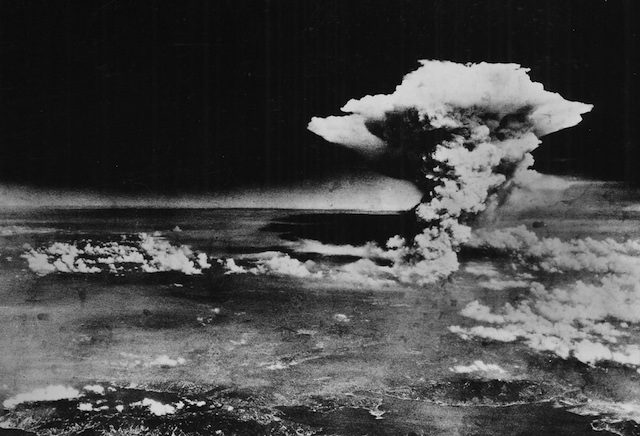
One of the most controversial decisions in all of military history — and there are many controversial military decisions to choose from — remains the decision to drop the atomic bomb on two different Japanese cities, Hiroshima and Nagasaki. Many who see the advent of nuclear bombing capabilities and everything that they have some to represent view the decision as somewhat rash; and of course the long-term consequences, including increased incidence of certain types of cancer in survivors and their descendants, do lead to pressure to retire nuclear weaponry altogether. One of the arguments made about the situation is that Japan would have fallen if only the US had been sufficiently patient to maintain a blockade of the archipelago, but this ignores the fact that the Pacific Theater, as it was called, spanned China and parts of Eurasia, along with considerable territory scattered around the Pacific. But while the bomb certainly brought an end to the war, it’s possible that it could have remained in reserve for a little longer if not for a bad translation.
Allied forces sent the Potsdam Declaration, also known as the Proclamation Defining Terms for Japanese Surrender, on July 26, 1945. Alongside the details issued to Japan was the informed ultimatum issued by the US in particular; having successfully tested the atomic bomb ten days earlier, the US informed Japan that if it did not surrender, the country would face “prompt and utter destruction.” Such a bald and aggressive statement brought about a hot debate in the Japanese government, leading to Prime Minister Kantaro Suzuki stating in a press conference that Japanese policy towards the Potsdam Declaration would be one of “mokusatsu.” And that is where the breakdown in communication came about. “Mokusatsu” can refer to two very different things: one interpretation — the most literal — is an acknowledgement with the implication of a need for time to carefully consider. However, another meaning the word can have is “to contemptuously ignore,” and this was the translation that was provided to President Harry S. Truman. That response to the ultimatum heavily weighed in the decision to bomb Hiroshima, and the lack of response immediately following the first bombing led to the second one. If someone had explained the possible other definition of the phrase, Truman might have held off; of course, there’s no way to know for sure that the bombs would not have been deployed later on, but it could have ended with Japan’s surrender and a longer delay before the atomic bomb was revealed to the world.
Mistakes play as great a role in the history of the world as successes do, even if they are not what countries or individuals necessarily want to remember. Whether a mistake leads to a company that might have otherwise remained a minor piece of technology becoming a multibillion dollar giant, to an empire falling, loss of life or just loss of opportunities, mistakes have the power to change the world and our understanding of it — for better and for worse.